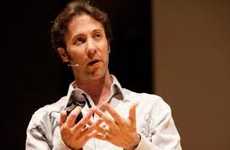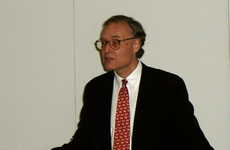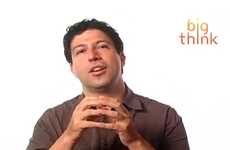
David Linden Keynotes
Keynotes by David Linden discuss how the human brain and body react pleasurably to uncertain and...

Need Inspiration?
Get inspired by 4,000+ keynote speaker videos & our founder, a top keynote speaker on innovation.
The David Linden Brain Engineering Speech Explains Our Messy Nature
Vasiliki Marapas — December 1, 2013 — Keynote Trends
References: youtu.be
Neuroscientist David Linden notes that there is a tendency to be awed by the abilities of the human brain in his brain engineering speech. Though evolution has managed to create some amazing feats geared towards our survival—for instance, the pleasure circuits of our brain are adapted to let us enjoy eating, drinking and copulation, and linking these pleasure circuits to social cognition functions promote group cohesion.
However, Linden is quick to mention that the brain is not the most effectively constructed. In fact, he refers to the evolution process itself as a “tinkerer” rather than an engineer. This means that it focuses on solving problems as they come, rather than looking at all possible contingencies for the most effective composition. The brain is ultimately more of a mess than one might initially think, especially considering the fact that we possess two visual and two audio systems (unconscious and conscious.) However, this does not mean that it does not function well; it merely means that not everything is necessarily adaptive or useful, and that our brains are receptive to cultural and behavioral impact.
However, Linden is quick to mention that the brain is not the most effectively constructed. In fact, he refers to the evolution process itself as a “tinkerer” rather than an engineer. This means that it focuses on solving problems as they come, rather than looking at all possible contingencies for the most effective composition. The brain is ultimately more of a mess than one might initially think, especially considering the fact that we possess two visual and two audio systems (unconscious and conscious.) However, this does not mean that it does not function well; it merely means that not everything is necessarily adaptive or useful, and that our brains are receptive to cultural and behavioral impact.
1.7
Score
Popularity
Activity
Freshness

















